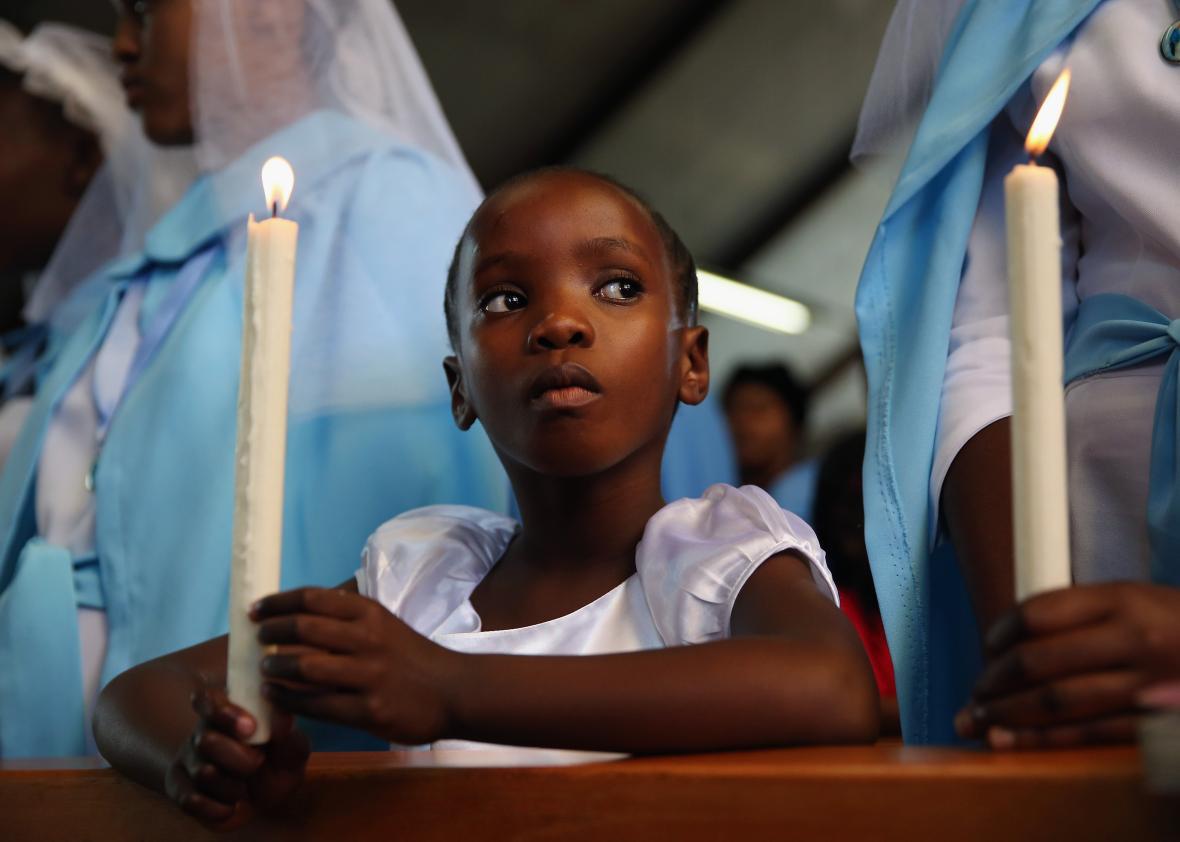Religion, Alexis de Tocqueville wrote in Democracy in America, “reigns supreme in the souls of women, and it is women who shape mores.” Just over 180 years later, the observant Frenchman is getting some backup from the world of social science. The Pew Research Center released a new study on religion and family life on Wednesday, and one major conclusion is that women have a significantly greater influence over their children’s religious lives than men do.
In a way, this is not earth-shattering news. For one, women tend to be more responsible for childcare in general than men. And there is plenty of previous research that shows women are more religious than men, too (in case you didn’t believe Tocqueville on that, either). As Pew summarized earlier this year, American women are significantly likelier than men to say religion is “very important” in their lives, to say they pray daily, and to attend religious services at least weekly. The gap holds true all around the world, and, with a few minor variations in specific measurements of religious commitment, in every leading religion. In the new study, 83 percent of those with one religious parent and one unaffiliated parent said their mother was the religious one.
But even within that context, the disproportionate influence that women have over their children’s religious lives is startling. Among people raised in Protestant families, just 5 percent say their father was primarily responsible for religious education, while 28 percent named their mother, and the rest said both parents were equal. The breakdown in Catholic families was very similar.
The new study focuses primarily on the concept of “religious mixing”—families where each parent has different beliefs and practices. In interfaith families, mothers’ influence is even more dramatic. Almost half of those raised in families where the parents had different religious affiliations say their mother was primarily responsible for their religious upbringing; just 7 percent say their father played that role. (Most of the rest said their parents took equal responsibility.) Among those who were raised by one religious parent and one unaffiliated parent, almost two-thirds say their mother took the helm when it came to religion. Overall, eight in ten adults say they were raised within a single religion, but religious mixing seems to be getting more common, so the question of how parents exert influence in these settings will become more important to both researchers and parents in the coming years.
And it’s not just that mom does most of the family’s religious labor. She also gets results. As adults, people raised in interfaith families are more likely to adopt their mother’s religion than their father’s; almost half of those adults now identify with their mother’s religion, while 28 percent identify with their father’s, and the rest with neither. Among those who say their mother was primarily responsible for their religious upbringing within an interfaith family, even more (59 percent) say they now identify with their mother’s religion.
As a mother who takes my daughter to church alone, I should be comforted by these results. I have a pretty decent chance of “winning”! But the study is really a reminder that when it comes to coupling up, a religion is a bit like a last name: One person can adopt the other’s, or each partner can keep their own, or they can forge a new path together. And when children arrive on the scene, the difficulty of finding an elegant solution becomes all the more acute. Couples smash their names and their faith traditions together in all sorts of different ways in order to arrive at a satisfying compromise. But ultimately not all of them can be preserved.
